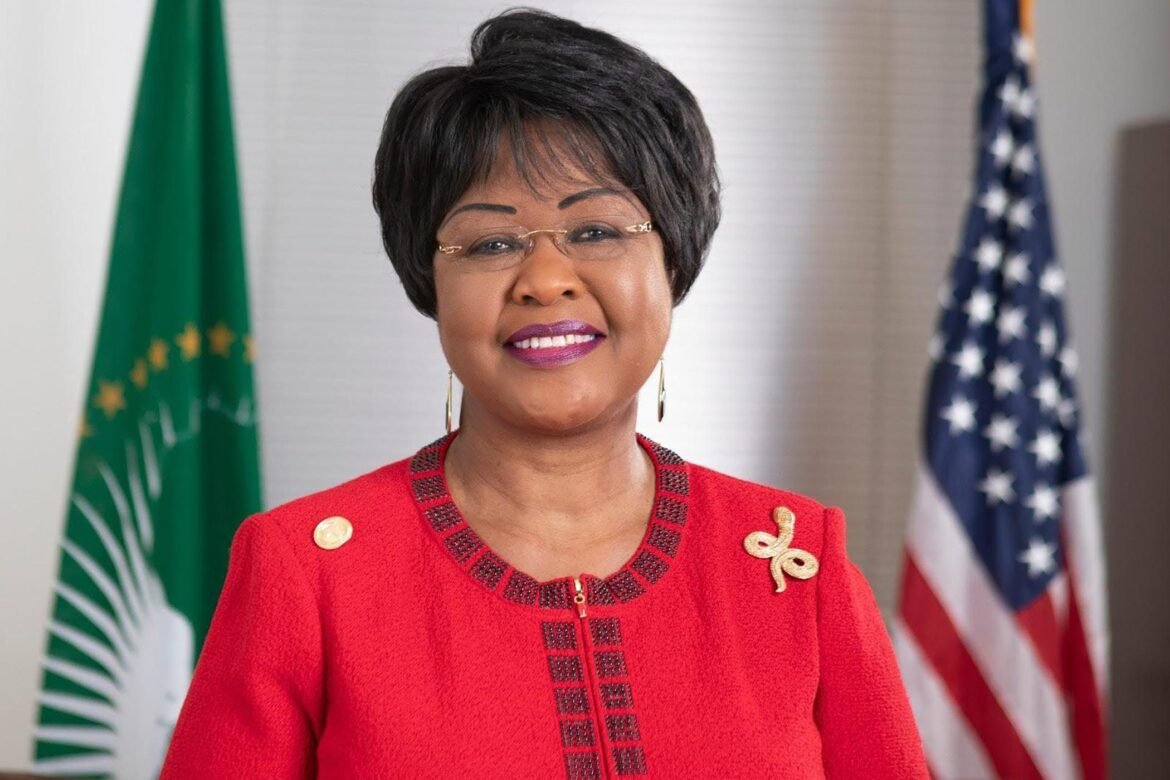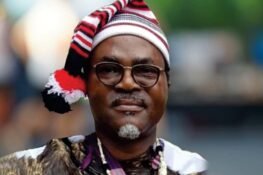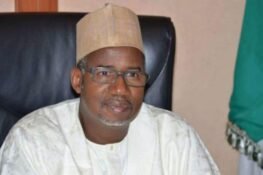The letter was dated October 7, 2019; but it would come into effect on Friday, November 1. The recipient was probably expecting it, but it doesn’t matter anymore. She is moving on.
Arikana Chihombori-Quao has not been a firebrand for over two decades without scars to show for it.
And now, she’s nursing a fresh one.
Former Chadian prime minister and current Chair of the African Union Commission, Moussa Faki Mahamat, inflicted the latest scar on Arikana in a letter on October 7, terminating her appointment as the AU ambassador to the US.
Anyone – especially anyone linked to Africa – who has watched Arikana’s four-minute video calling out France for fleecing Francophone African countries and criticizing the leaders of these countries for playing along like Pavlov’s famous dog will know that she was asking for trouble.
And it was delivered in a five-paragraph letter in a way that suggests that a number of African leaders still can’t help loving to the death those who use them spitefully.
What is driving the AU mad?
In the video, Arikana referred to the existence of a pact between France and Francophone Africa, which she described as, “Pact for the continuation of colonisation.”
Part of the content of the said pact, according to her, is a provision that Francophone countries (14 of them) would deposit 85 percent of their bank reserves with the French treasury, which France invests in the French Stock Exchange and creams off the interest.
According to Arikana, France may be taking up to $500bn from Francophone African yearly, “with the latest figures saying that for every $14billion that France takes out of Africa, they realise about $300bn,” making Charles Ponzi, the famous American all-time crook and money-doubler, look like an amateur.
She added that France also gets exclusive and preferential rights to minerals, and special military ties that consign the military in Francophone countries to boy’s scout duties in their own countries.
While I share her frustration about the attitude of many African leaders who appear to be unwilling or incapable – or both – of dealing with problems in their countries, the facts of this particular case are more nuanced than were contained in her video
It has been suggested that France was so upset by the video that President Emmanuel Macron leaned on the AU to get rid of Arikana, and Mahamat being Francophone, had no qualms carrying out Macron’s execution orders in a brutally cold and cheerless letter that cut Arikana’s contract by at least one year.
She was hired in 2017 and her first tenure was not expected to end until next year, at least.
Did Arikana deserve her fate?
While I share her frustration about the attitude of many African leaders who appear to be unwilling or incapable – or both – of dealing with problems in their countries, the facts of this particular case are more nuanced than were contained in her video.
A chunk of her claims was probably extracted from SiliconAfrica.com, an online publication in which the editor, Mawuna Remarque Koutinin, made rather extravagant allegations of France’s exploitation of the African states in question.
Arikana was, of course, right about a few things. For example, the currencies of the 14 African countries in question are backed by the treasury in France and pegged to the euro.
No matter how you slice it, for countries that have been independent since 1960 in some cases, such apron-string dependence is a disgrace that can’t be called by any other name in French or English.
A close friend who visited one neighbouring Francophone country recently told me how sorry and ashamed he felt to find French gendarmes guarding French businesses in the country’s capital. Apparently, the local police were not good enough.
But Arikana was also wrong about a number of other things she said. It is not true, for example, that the 14 countries (and note that two of them were not even former French colonies) are required to keep 85 per cent or 60 per cent of their deposits as reserve in French treasury.
Or that France makes over $500bn annually from turning over deposits from her former colonies lodged in its treasury.
But who can deny that in Francophone and non-Francophone African countries, there is currently the prevalence of a mentality that swoons over all things Oyibo, a mentality sometimes worse than the provision of any written pact if ever there was one?
French treasury holds 50 percent or about $20bn, which earns “positive” annual interest of 0.75 per cent and not nearly the figures quoted in the video.
It’s also improbable that you will find a document romantically described as ‘Pact for the continuation of colonisation’, which chiefs of staff present to new heads of state on their first day in office in Francophone countries, as Arikana claimed.
But who can deny that in Francophone and non-Francophone African countries, there is currently the prevalence of a mentality that swoons over all things Oyibo, a mentality sometimes worse than the provision of any written pact if ever there was one?
And these days, that mentality of white idolatry is not only at play in dealings with the “real” Oyibo, it often extends to the Chinese Oyibo, the Indian Oyibo, even the Lebanese Oyibo who have joined in the second scramble for commodities on the continent.
That’s how bad things have become.
Back to the question: Did Arikana deserve her fate? She did not.
She was obviously carried away by her passion for a continent that has treated itself spitefully and yet appears to be doing very little to seize its own destiny.
Yet, Arikana has paid more than lip service to her commitment to Africa’s unity, especially the unity of her medical professionals in diaspora.
For nearly 10 years, she has been the chair of the International Chair of the African Union-Diaspora African Forum Americas, dedicated to helping Africans and their friends rebuild the continent.
And only this year she started the “Wakanda One Village Project”, an African-based hub for learning, consolidating and sharing experiences among African professionals that is starting in Zambia and Zimbabwe before going to five other regions on the continent.
Above all, a Fellow of the American Academy of Family Physicians, it was her excellent work in the area of family medicine that earned her recognition across the world, including the award of “Women of Excellence” bestowed on her by the AU at its summit four years ago.
Mahamat should not have thrown away the baby with the bath water in a manner that suggested that he was acting out Macron’s script.
Perhaps Arikana should have been asked to resign, if the AU thought her position was no longer tenable.
Compare Arikana’s fate with the fallout of the faux pas by Kim Darroch, the British ambassador to the US who, in a leaked cable, called President Donald Trump’s administration “inept, uniquely dysfunctional,” and Trump as “incompetent”, among other deserved, but unprintable names.
Trump was livid and immediately demanded that London recall the ambassador, because not only had his position become untenable, he would no longer be able to work with him.
Theresa May, who was the Prime Minister at the time, noted Trump’s complaint, but did not push the ambassador over the edge.
Mahamat should not have thrown away the baby with the bath water in a manner that suggested that he was acting out Macron’s script. Perhaps Arikana should have been asked to resign, if the AU thought her position was no longer tenable
Instead, Darroch resigned after the matter came to light. Shortly after his resignation, however, May honored him by choosing him as a peer to the House of Lords.
If Darroch had been an African envoy, his president would have immediately fetched him from the embassy with a fishing hook and flung him under a bus.
There’s no doubt that Arikana’s video ruffled feathers but perhaps we need not only ruffle but even shed feathers for new ones to grow.
Her speech is a wake-up call and it should help us look again in the mirror, if we are really outraged by what we see.
Arikana may have been guilty of exaggeration, which as Kahlil Gibran says, is truth that has lost its temper; but the evidence of the vassal status of Francophone Africa – and indeed the entire continent – is hard to deny.
The problem is not solved by executing the messenger or scrambling to Beijing, Delhi or Sochi or wherever else a special summit on Africa is summoned.
We must roll up our sleeves and do the dirty work which confronts us so blatantly at home.








